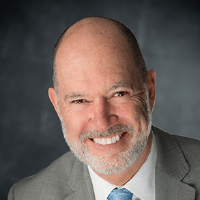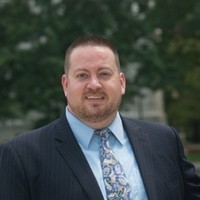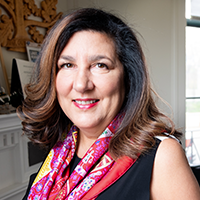Many individual student affairs professionals are feeling lost right now, as are their institutions as a whole.
We’re not sure how to respond to these “unprecedented” times. And where are we, as a collective field, heading?
Well, the leaders of our field’s associations are the closest thing we have to representatives of our many diverse, collective voices. These folks have heard from hundreds — maybe even thousands — of their members, and thus, can see a unique bird’s eye view of overlapping challenges, trends, and solutions.
So, we recently hosted a happy hour webinar to learn from them! Our near 90-minute chat featured the following people:

NASPA President

NODA Executive Director President

ACPA Executive Director

ACUHO-I CEO & Executive Director

ACUI Diector of Volunteer & Member Engagement
They shared their honest, vulnerable thoughts on how institutions are (or should be) responding to the COVID-19 pandemic, gave predictions for our future, and offered up advice to listeners.
Missed out? No sweat. The full chat is available to download here — 100% free.
Or, if you’d prefer to just skim through a few of the top points, we’ve got you covered as well. Here are 10 of the top ideas, theories, and words of wisdom we heard, straight from the association leaders themselves.

1. Not all institutions will likely be able to continue operating.
“Will all colleges and universities survive this? No. There’s no doubt that this will be the death blow for some institutions already on the margins. We’ll see increases in mergers, closures, [and] acquisitions, particularly in some of the most vulnerable institutions. I’m largely speaking about small colleges, universities with small enrollments where this enrollment challenge we’re facing right now and giving back room and board could put them on the margins.” — Kevin Kruger
2. There’s still room for hope, but things need to change.
“Higher education is incredibly resilient to a variety of things that come our way. There’s been a call for the end of higher ed as we know it, brick and mortars, for decades if not longer. There’s something very unique about the value proposition higher education offers.
However, I think that we are going to be in a period of transformation and we will look back on the last five years as the golden years. And that there will be some substantial changes to the ways in which colleges and universities function. Their funding structures will dramatically change, at least for the foreseeable future.” — Kevin Kruger
3. Enrollment trends and prospective students’ needs will shift dramatically.
“One of the things that is certainly changing is … the general economy — what our students are facing and what they are going to be able to afford. You know, when their parents come out of this … that impact is certainly going to mean that students are going to be willing to take more classes online or at local community colleges. It may mean that regional colleges see a boost because more students might be able to live closer to home or in areas that are a little bit less expensive.” — Mary N. Deniro
4. Students will need extra support from us.
“Student affairs, regardless of what aspect of student affairs one specializes in, is going to play an even more important role. These students that are going to be coming in the fall, god willing — or the next time we see them — they are really going to be traumatized by what has happened … I think students coming in are going to find that they need the resources of student affairs professionals even more as they navigate through a university system. And I think as, as professionals, once we see them back on campus, if that’s where we see them, or in the virtual world, their problems are going to be different.” — Mary N. Deniro
5. Student affairs will need to prove its worth, now more than ever.
“I think that this could mean a rethinking of the way student affairs is delivered. It could take us years to recover or it could be irreversible. I think there’s already a lot of pressure from institutional leaders, from provosts and presidents saying, “So now that the students are gone, what are y’all doing?”
Well, I know what y’all doing … We’ve been talking to you and we know how busy it has been trying to recreate engagement in orientation and commencement. But I’m not sure that’s widely appreciated sometimes by the leaders of all our institutions. It might seem like an easy solution to shed 15, 20, 25 percent of student affairs. And that’s going to be injurious to the student experience and certainly to the structures that we’ve become accustomed to.
I hate to be doomy and gloomy about this. I’m really sorry but that’s the thing I worry about.” — Kevin Kruger
6. Innovation and creativity will be vital.
“I think it’s a really important opportunity to get creative and find ways that we can still create that community and [opportunities for] social adjustment and learning about independence that’s so critical to the role of student affairs.
We’re really fortunate that we have so much technology that will enable us to do that. But it will remain critical to the success of students’ learning that they are introduced to organizations and services and have spaces where they can be exposed to different ideas and people that are different from them. That’s so critical to the learning process and so critical to the future of them as leaders and citizens in our world.
We need to remind ourselves of that core purpose of student affairs and be those advocates in pushing higher education to be creative in this crisis.” — Justin Rudisille
7. Orientation professionals are planning for multiple scenarios.
“Everybody’s creating ‘what if?’ scenarios right now and making adjustments as best they can. If students aren’t back on campus, then I’m seeing our members getting very creative in thinking about what welcome week would look like virtually. And trying to build community virtually is not an easy task, but especially if they have orientation in May or early summer, many are moving orientation online.
Some are pushing orientation to welcome week, but then you have the scenario of ‘What if the students aren’t back in the fall?’ And so then, we’re seeing other scenarios where there are institutions that are thinking about what does welcome week look like virtually. I haven’t seen a cancellation so far of a welcome week, but I know that there are discussions that are happening because they have to.” — Joyce Hall
8. We can learn a lot from institutions abroad.
“I might recommend a model that the South Africans use … they take their entire first-year class and whether they live on campus or not, they’re assigned to a residence hall and they build that sense of community. And so there may be some things that we can learn.
In fact, I think there’s a lot of things we can learn from our members who live outside of the United States and those who have gone through these periods of education disruption before. Certainly South Africa — you know, they have had regular points in time where their students have been sent home and not campus. And so, there are others who have gone through this and they’ve survived. And I think we need to learn from some of those lessons.” — Mary M. DeNiro
9. We need to advocate for individual student support.
“Before the COVID thing, we knew that there are more low-income students coming to college, more first-generation students, more students of color. And we knew that there were strategies necessary to help them succeed. And a lot of those strategies were one-to-one coaches, mentors, that kind of thing.
I think if I was a vice president of student affairs, I would be looking at ‘How do I repurpose my divisional student affairs to provide personal contacts to students who likely are going to slip through the cracks in this next online venture? Which students are not checking in on their LMS? Which students have we not heard from? Which students are the most vulnerable?’
Why not develop a system [in which] we use our student affairs staff, most of whom have master’s degrees and are trained to do this?. They can pivot to provide those kinds of services … No one else on campus can do that. Particularly as you think about the intersection of mental health issues, faculty are ill-equipped to do it. And so we have a unique skill set that we could leverage right away, with the right organizational structure, to reach out to some of those students who are the most vulnerable.” — Kevin Kruger
10. We can view this as a call to modernize our practices.
“I think this is a chance to lead from a place of values, to remind each institution of its purpose, mission, and values … and take some leadership on what student affairs and higher education looks like in the next round.
I don’t think our campuses are modern 21st-century organizations right now. I think we’re still doing things the way that we did it in the eighties and the nineties and the early part of the 2000s. So, what would it look like to rethink, proactively, being a modern 21st-century organization that embraces technology, that embraces work-life balance?
I hope we come out of this recognizing the importance of student affairs staff and lead the way in becoming a modern organization.” — Chris Moody
Thanks so much to each of our panelists! It was truly an enlightening conversation.

And hey there, reader, don’t forget: You can still download the full webinar here, and sign up to attend or download future happy hours — featuring #SApros from a variety of backgrounds addressing a multitude of topics — here. We hope you’ll join us!





